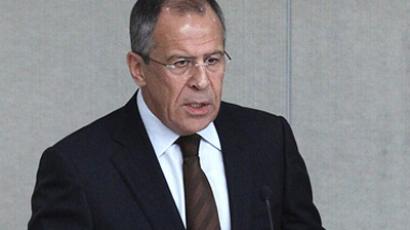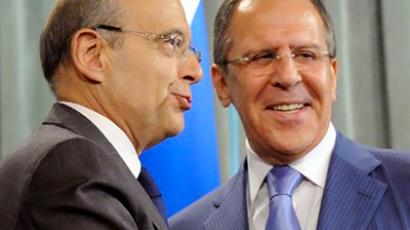UN ends NATO mission despite pleas from Libya
The UN Security Council has voted unanimously to lift the no-fly zone above Libya and end NATO’s military operation, turning a deaf ear to pleas from the country’s new leaders to extend its mission until the end of the year.
Russia’s ambassador to the UN, Vitaly Churkin, said NATO is expected to fully comply with the resolution.“We hope that indeed a new chapter is being opened in Libya, and that the Libyan people will be able to take advantage of the new situation to build a new Libya they desire,” Churkin stated.NATO’s secretary general, Anders Fogh Rasmussen, stated that on Friday the alliance will confirm a decision to end its operations at the end of the month. He treated the UN vote as an appraisal of the alliance’s activities in the area, saying that the resolution “reflects that we have fully accomplished our mandate to protect the civilian population of Libya, so now we have firm ground for terminating our operations as we decided to do a week ago.”Rasmussen added that even though he does not “foresee a major NATO role in Libya in the post-conflict period,” if requested, the alliance could assist the new Libyan government in the transformation to democracy, particularly in the areas of defense and security sector reforms.
Initiative put forward by Russia
The UN Security Council vote on the issue was initiated by Russia. The decision frees the skies above Libya and brings to a close NATO’s intervention in the country. “Against the background of the changes that have occurred in Libya, the no-fly zone is now looking like an anachronism,” Russian Deputy Foreign Minister Gennady Gatilov told Interfax before the Thursday vote. “Therefore, Russia has proposed lifting this zone.”The initiative and the consensus text of a draft resolution which came as a result, were supported by other Security Council members, according to Gatilov. What has come to be known as the Libyan Civil War began on February 15 as a series of peaceful protests that eventually snowballed into a full-blown uprising.The no-fly zone was approved by a UN Security Council vote on March 17, along with “all necessary measures” to protect civilians. Russia, together with four other council members, including China, abstained from the vote. Since then, NATO forces have pursued a continuous aerial campaign which has led observers, including many in Moscow, to conclude that the coalition was “overstepping its UN mandate” and siding with the rebel forces.Most countries on the 15-member council said they wanted NATO to stick to the plan to end its mission in Libya the last day of October.
NATO mission: more harm than good?
Some analysts argued that NATO’s seven-month military campaign in Libya was neither justified nor in compliance with its stated humanitarian mission.“The military operation damaged everything in Libya, not just Gaddafi and his regime, but the society [as well],” said Shawan Jabarin, a Palestinian human rights activist.“The concern that we have these days is that the society maybe will explode more and more, and the violence will continue for [a long time], which will destroy the social institutions,” Jabarin warned.NATO says it still has no information on the number of civilian deaths in Libya. Jabarin believes that there were a large number of innocent people killed.“I think it’s a high human cost and a high price, but NATO don’t care about these things,” Jabarin claimed. “What happened in Iraq, Afghanistan – and what is going on in Afghanistan these days, as well as in Libya – are the examples that they are not taking care of… the lives of the people.”
However, NATO assistance for the country’s new leaders in the future has not been ruled out. The US says talks are underway with the National Transitional Council (NTC) on a possible new role for NATO following the campaign of air strikes that played a key role in the downfall of Muammar Gaddafi.Libya’s new authorities earlier said they wanted NATO to prolong its stay in the country. Interim leader Mustafa Abdel Jalil on Wednesday urged NATO to continue its Libya campaign until the end of the year. Meanwhile, Russia has put forward a plan aimed at making Gaddafi-era military stockpiles secure, in order to prevent Libyan weapons illegally disappearing abroad.With the NTC finding it impossible to get a handle on what is there, and failing to deal with the plethora of arms already circulating, Russia’s plan will be critical in preventing a dangerous situation developing.














